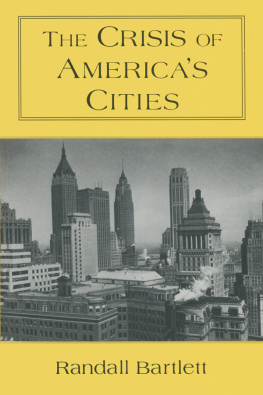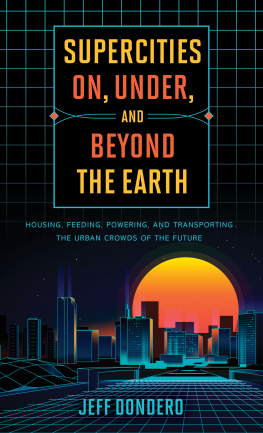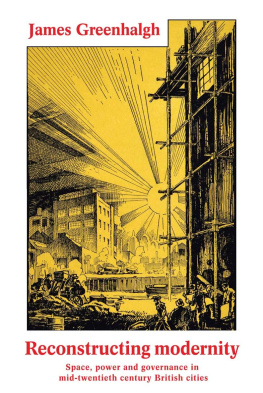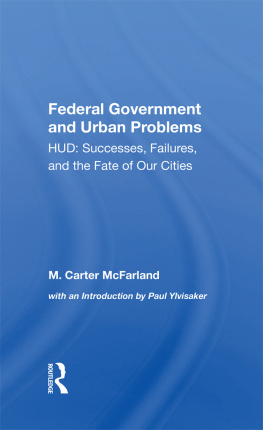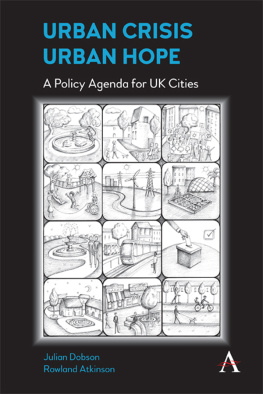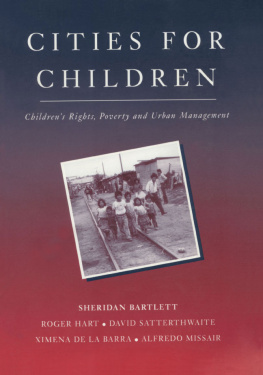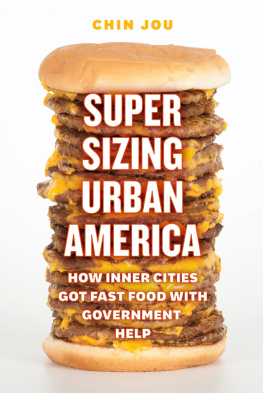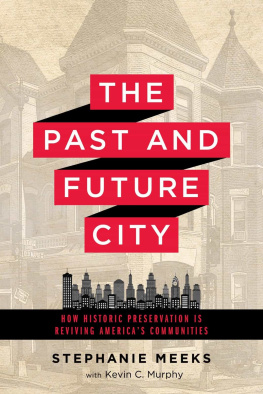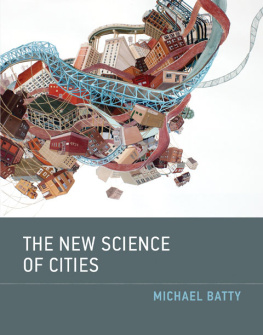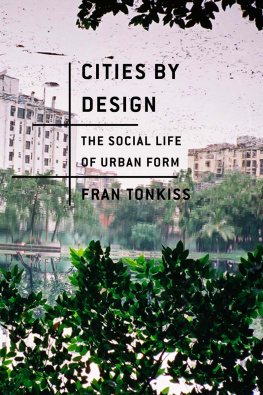The Crisis of Americas Cities
The Crisis of Americas Cities
Randall Bartlett

First published 1998 by M.E. Sharpe
Published 2015 by Routledge
2 Park Square, Milton Park, Abingdon, Oxon OX14 4RN
711 Third Avenue, New York, NY 10017
Routledge is an imprint of the Taylor & Francis Group, an informa business
Copyright 1998 Taylor & Francis. All right reserved.
No part of this book may be reprinted or reproduced or utilised in any form or by any electronic, mechanical, or other means, now known or hereafter invented, including photocopying and recording, or in any information storage or retrieval system, without permission in writing from the publishers.
Notices
No responsibility is assumed by the publisher for any injury and/or damage to persons or property as a matter of products liability, negligence or otherwise, or from any use of operation of any methods, products, instructions or ideas contained in the material herein.
Practitioners and researchers must always rely on their own experience and knowledge in evaluating and using any information, methods, compounds, or experiments described herein. In using such information or methods they should be mindful of their own safety and the safety of others, including parties for whom they have a professional responsibility.
Product or corporate names may be trademarks or registered trademarks, and are used only for identification and explanation without intent to infringe.
Library of Congress Cataloging-in-Publication Data
Bartlett, Randall, 1945
The crisis of Americas cities / Randall Bartlett.
p. cm.
Includes bibliographical references (p.) and index.
ISBN 0-7656-0301-2 (hardcover : alk. paper).
ISBN 0-7656-0302-0 (paperback : alk. paper)
1. Cities and townsUnited States. 2. Cities and townsUnited StatesHistory.
3. Urban policyUnited States. I. Title.
HT123.B324 1998
307.760973dc2198-23185
CIP
ISBN 13: 9780765603029 (pbk)
ISBN 13: 9780765603012 (hbk)
To Catherine,
Randall,
Ellika, and
David
Contents
Although my name appears as the sole author on the cover of this book, in truth I have not written it alone. Javiera Sequeira served as an able research assistant during the drafting of this book. Although she was only in her first year of college, I turned her loose, time and time again, with only the vaguest guidance. Time and time again she came back with valuable sources and contributions. I also asked her to read the draft as it emerged. She thus saw what was happening to the material she found, yet she never once complained about either the process or the product. I owe her real thanks for her exceptional efforts. I am also grateful to Steve Dalphin who was executive editor at M.E. Sharpe when I first submitted the manuscript.
My explicit goal in writing this book has been to make the process of urban evolution come alive for intelligent readers who care about, and hopefully will affect, the future of Americas cities. I wanted to reach people who are unencumbered by excessive professional specialization. Thus when it came time to ask colleagues to read drafts I turned not to my economist colleagues but to real people. Dennis Hudson, professor of world religions at Smith College, read several of the early chapters and offered a perspective unavailable from any economist. He made me see my subject through different eyes, as he often does. Some of his insights I was able to incorporate; others I was not. I appreciate his perceptive contributions as well as his friendship, here and always.
Marion Van Arsdell read it all and made useful comments without a penny of compensation. She had to. She is my sister. Jean Bartlett also read it all. In addition to her substantive suggestions she acted as unpaid copy editor. She also had to. She is my mother and has been doing both those jobs for many decades. For that, and for so very much more unrelated to this book, I am forever grateful. Both of them fit clearly into my target audience of intelligent people who care about what happens in this world, and I was much encouraged by their positive response.
And then, of course, there is my immediate family. My children continue to fill my days and nights with excitement. So much so that this project took longer to finish than I would have liked, but I would not have given up a moment of the time spent with them. When I last completed a book several years ago I included mention of my wife Catherine in the acknowledgments. I cleverly noted that unlike some authors, I could not give her credit as an unnamed coauthor. She had not read that book, did not really know what it was about, and maybe did not even care. Our children were young. She was building a medical practice, and musings about economic theory were, rightly, low on her priority list. There was much we all asked of her in those years and she always gave more than was asked. This time, somehow, even amidst the extraordinary demands of being a full-time physician, an exceptional mother, and the true joy of my life, she did find time to read it all and make valuable comments. She is not doing anything else less. I do not know how she found the time to do more. I am eternally grateful for her and all that she does. Reading this book was the very least of it, indeed.
Today the vast majority of Americans live in large cities and their suburbs. Begun as a nation of widely dispersed rural farmers, generation after generation we have become more and more urbanized. We are now, and for the foreseeable future will continue to be, a nation of cities. Yet it is clear that all is not well there. The issue is not whether we will continue to live in cities, but rather how we are going to live with them. Pick up any newspaper, observe any political campaign, visit any major city and the theme of a growing urban crisis will be there. Too much poverty, too much decay, failing infrastructure, insolvent local government, the collapse of public education, fear of ever more violent crime, racial isolation, smothering traffic congestion, a growing loss of jobsthe list of urban problems is seemingly as endless as the political conflict over them is apparently irresolvable. For better or for worse, for now and for later, cities are where we live.
Everything that we do must be done somewhere. Indeed, it is where we decide to work, to play, to call home, and how we move between these places that collectively and individually define our space. I considered giving this book the title Exploring Space, but finally abandoned that idea for fear that confused booksellers would place it in the science fiction section. Although the title has been changed, the metaphor persists throughout. This book is an exploration of space, not in the outer reaches of the universe but here on the surface of the nation where we locate and relocate ourselves.
Cities are unique places where large numbers of people have chosen to live and work in proximity to each other, crowding into small spaces, straining natural resources, yet somehow surviving. Urban living as the norm is very recent. For most of human history, any society predominately organized into cities would have been unthinkable and certainly unsustainable. Majority urbanization would have quickly resulted in mass starvation. It is only advances in technology that have made urban nations like the United States possible. It is technology that first permits and then prescribes living in cities.
We Americans are not forced to live in these concentrations. We choose to do so. Businesses are not compelled by law to produce their products in urban settings. It is simply more economic for them to do so. But it has not always been so. There is always a

